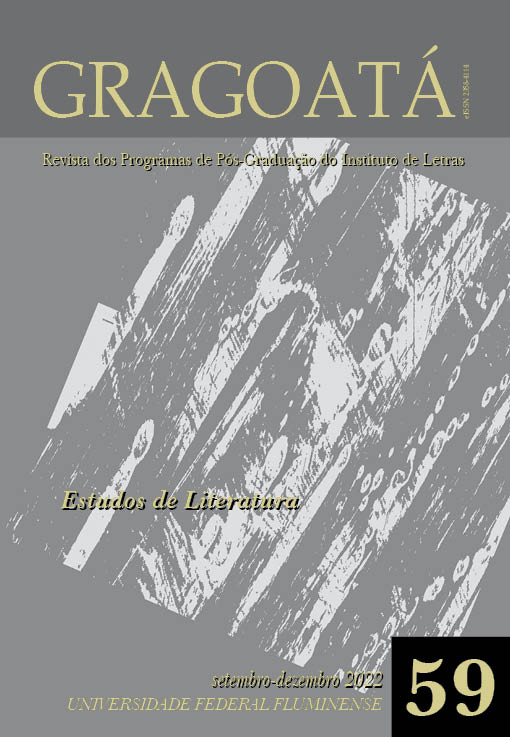World(s) apart – Borges Coelho’s Museu da Revolução and Writing in (and of) a Changing World
DOI :
https://doi.org/10.22409/gragoata.v27i59.54292Mots-clés :
world literature, postcolonialism, worldliness, poetico/literary performativity, fictional democracyRésumé
This article will depart from Said's position on the worldliness of texts and Pheng Cheah's reflections on postcolonial literature as world literature (2016) towards a reading of João Paulo Borges Coelho's 2021 novel Museu da Revolução. Borges Coelho's position on the articulation between history, politics, and literature (as literature; Rancière), as well as on the latter's aim of transforming the local place without losing sight of the universal, will provide insights into the ways in which the novel confronts the wordlessness of globalization. By staging a fictional democratization (Rancière), Museu da Revolução inscribes new ethico-political horizons as a "text that strives to generate the context", necessarily including those that have been forgotten from consensual (historical, political, memory) narratives. Lastly, the novel's positing of the transformative power of imagination will help flesh out the ways in which the "poetico-literary performativity" (Derrida) of texts can inscribe new ethico-political horizons and open up worlds (Cheah) when faced of the neoliberalist cancellation of the future (Berardi).
Téléchargements
Téléchargements
Publiée
Numéro
Rubrique
Licence
(c) Copyright Gragoatá 2022

Ce travail est disponible sous la licence Creative Commons Attribution 4.0 International .
AUTORIZAÇÃO
Autores que publicam em Gragoatá concordam com os seguintes termos:
Os autores mantêm os direitos e cedem à revista o direito à primeira publicação, simultaneamente submetido a uma licença Creative Commons Atribuição 4.0 Internacional (CC BY 4.0), que permite o compartilhamento por terceiros com a devida menção ao autor e à primeira publicação pela Gragoatá.
Os autores podem entrar em acordos contratuais adicionais e separados para a distribuição não exclusiva da versão publicada da obra (por exemplo, postá-la em um repositório institucional ou publicá-la em um livro), com o reconhecimento de sua publicação inicial na Gragoatá.
A Gragoatá utiliza uma Licença Creative Commons - Atribuição CC BY 4.0 Internacional.











